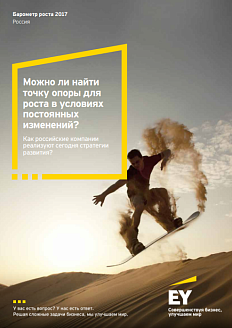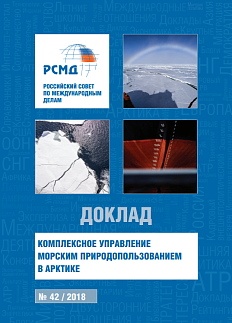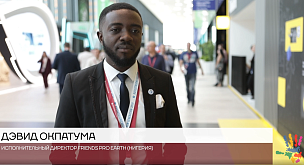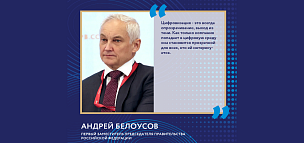Summary session «Northern Sea Route — Bounds and Opportunities» within the framework of the Arctic Talent Acquisition Conference, which took place on November 15-16, 2021 in Arkhangelsk.
KEY FINDINGS
The main resource in developing the Northern Sea Route and implementing projects in the Arctic zone of the Russian Federation is human beings; it is necessary to focus on improving education and attracting resources by creating attractive working conditions
«In this whole set of activities, one of the most important issues is staffing. Technique and technology require highly motivated trained professionals capable of operating in the extreme conditions of the north. In carrying out this work, the Main Department competes fiercely with other players in this staffing market, mainly with large companies able to offer decent remuneration and other bonuses. <...> Some of our competitors in the staffing market are looking first of all for brains, some for hands. We also need active people, and I would even say daring people, who are well physically prepared and able to act in extreme situations», said Dmitry Plotnikov, First Deputy Head of the Main Department of EMERCOM of Russia in the Murmansk Region.
«[There is] a need for a consolidated approach to personnel training. Personnel training cannot be a task of higher education, industry or the state alone. Only the triumvirate, uniting the efforts of operators of the Northern Sea Route, higher education, state authorities and administration will allow us to solve the main task of providing the Arctic projects with highly qualified personnel. <...> Just to train qualified specialists, we need narrowly focused knowledge and specialized programmes that will focus on training this kind of specialists», said Alexey Fadeev, Executive Director of the Association of Polar Explorers of the Murmansk Region, Chief Researcher at the Institute of Economic Problems.
In the Arctic zone of the Russian Federation, there is a lot of competition for personnel. Enterprises are fighting for people and trying to offer better working conditions. It is necessary to attract more specialists, including those from other regions
«Now, there is a lot of competition for personnel. We are starting to compete with each other for who will offer the best wage conditions. Thus, of course, taking into account that human resources in the territories, which belong to the Arctic zone, are not great, people move within our enterprises from one to another, rather than coming from other regions of the Russian Federation. Here, it seems to me that we need to work out a position to attract more people to the Arctic», said Mikhail Golyshev, Deputy General Director for HR Management at Zvezdochka Shipyard Centre.
«In the Arctic, there is not only a shortage of human resources but also a competition of industries for these human resources. Therefore, the main resource in the Arctic has been and remains manpower. We will do our best to ensure that this resource is of high quality and works for the benefit of our homeland», said Alexey Fadeev, Executive Director of the Association of Polar Explorers of the Murmansk Region, Chief Researcher at the Institute of Economic Problems.
PROBLEMS
Businesses operating in the Arctic need employees who have completed specialization or master’s programmes
«Professional standards impose certain requirements on the level of education and, in this regard, on career development opportunities for specialists. In particular, if a specialist has completed a bachelor’s degree, their career trajectory ends quickly. You cannot get higher than a 3rd or 2nd category engineer, and rarely 1st, or into management, without a master’s or specialist degree. In other words, there are certain restrictions on career development. On the other hand, shipbuilding is a knowledge-intensive, complex industry, so, of course, graduates must have an expanded set of competencies, knowledge and skills», said Mark Ivlev, Director of the Institute of Shipbuilding and Arctic Marine Engineering (Sevmashvtuz) of the Northern (Arctic) Federal University.
«Well, at the same time, when implementing big science-intensive projects, we need more and more specialists. Not just bachelors, but specialists who have a ’Specialist Degree’ or have graduated from master’s programmes», said Mikhail Golyshev, Deputy General Director for HR Management at Zvezdochka Shipyard Centre.
To attract human resources, safe working and living conditions must be ensured
«There is no more important task than the preservation of life, health of the people who work in the Arctic, who work at the enterprises. Let me cite some interesting statistics from the International Association of Oil and Gas Producers, which said that the largest number of fatal accidents occur not during resource extraction but during transport and logistics operations, when people are taken to drilling rigs and platforms. Given the conditions in which we are planning to implement our Arctic projects and develop the Northern Sea Route, safety issues, emergency response, organization of search and rescue are of paramount importance», said Alexey Fadeev, Executive Director of the Murmansk Association of Polar Explorers, Chief Researcher at the Institute of Economic Problems
«A harsh climate, challenging tasks are not easy to accept if the main issues, where to live and how to relax, are not resolved. Material, technical and domestic support is the focus of the Headquarters’ management. I repeat, we are trying to create all conditions for personal development of our specialists in all directions, including creative, sporting and professional», said Dmitry Plotnikov, First Deputy Head of the Main Department of EMERCOM of Russia in the Murmansk Region.
Arctic projects cannot be effectively implemented without aviation development
«The industrial transport development of the Arctic is impossible without aviation. Helicopters and planes involved in the creation of the coastal infrastructure of the fields accompany and support the development of transport along the Northern Sea Route. <...> Maritime aviation infrastructure should be developed as a whole. This should be taken into account when planning state programmes and plans of private companies. Activities in the Arctic require more work. These are commonplace truths that have long been clear to all. It is important to involve regional enterprises in major projects. This will strengthen the transport sector in the Arctic and create a reliable infrastructure», said Alexander Pozdnyakov, General Director of the 2nd Arkhangelsk United Aviation Division.
SOLUTIONS
In order to increase the level of competence of specialists for Arctic projects, the number of budgetary places in specialist and master’s degree programmes should be increased, and training quotas should be created
«The introduction of new educational standards, the desire of young people to pursue a career, pushes them to get a good education. To this end, we try to support our partners, strengthen the material part, develop our base department, attract leading specialists to the educational process and organize internships not only for specialists but also for teachers at our companies. <...> Therefore, of course, it is necessary to increase the number of budgetary places for students in the speciality and master’s programs at our base university. We see that further growth in the volume of Arctic projects requires immediate and universal attention here. We should have dealt with this problem yesterday. Still, at least we can deal with it today so as not to be too late for their implementation», said Mikhail Golyshev, Deputy General Director for HR Management at Zvezdochka Shipyard Centre.
«Regional aviation companies need special quotas for places in aviation universities so that we can send applicants for training. <...> The lack of quotas seriously hampers entry. We would like to see graduates of our schools go on to study to become aviation specialists and come back to work in our companies. We invite industrial partners and state organizations to actively cooperate. Interaction with our enterprise will certainly lead to a good effect of Arctic development», said Alexander Pozdnyakov, General Director of the 2nd Arkhangelsk United Aviation Division.
«Often businesses say all sorts of things: give us manpower, provide it. But it is two-way traffic. First of all, the enterprises themselves have to use certain tools at their disposal, which not everyone uses. For example, targeted training, willingness to become an internship base, participation in career guidance events, and, generally speaking, to work long term. This is when the enterprises themselves take a step towards universities. This joint work will lead to success», said Mark Ivlev, Director of the Institute of Shipbuilding and Arctic Marine Engineering (Sevmashvtuz) of the Northern (Arctic) Federal University.
Shipbuilding and aircraft procurement for Arctic projects should be synchronized, and landing sites should be equipped with modern equipment
«When building ships for the Northern Sea Route, the aviation part of the project should be synchronized with plans for the procurement of aircraft so that aircraft can land on seagoing vessels. <...> The aviation infrastructure should be developed. Airfields, landing pads, and communication facilities along the coast and on the islands should be built. Construction planning should be carried out jointly with the state corporations operating the fields. For existing sites and airfields, the possibility of joint use should be envisaged. This applies to sites that belong to agencies such as the FSB, the Ministry of Defence and others. All landing sites should be equipped with modern air navigation equipment to ensure accurate approach in all weather conditions», said Alexander Pozdnyakov, General Director of the 2nd Arkhangelsk United Aviation Division.
For more analytical materials on the Arctic agenda, see the Roscongress Information and Analytical System roscongress.org/en/knowledge/arktika/materials/.
The material was prepared by the information partner of TASS.






